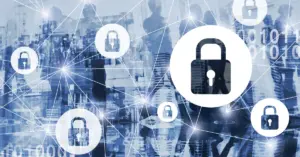Introduction
In today’s digital age, cybersecurity has become a crucial aspect of both personal and organizational safety. With the proliferation of internet usage, the increasing sophistication of cyber threats, and the growing reliance on digital systems, understanding and implementing effective cybersecurity measures is more important than ever.
What is Cybersecurity?
It refers to the practice of protecting computer systems, networks, and data from digital attacks, unauthorized access, and damage. It encompasses a wide range of techniques and practices designed to safeguard information and ensure the integrity, confidentiality, and availability of data. Cybersecurity involves various domains, including:
- Network Security: Measures to protect the integrity and usability of the network and data, preventing unauthorized access and ensuring secure communication.
- Information Security: Protection of data from unauthorized access, disclosure, alteration, and destruction.
- Application Security: Ensuring software applications are secure by identifying, fixing, and preventing security vulnerabilities.
- Operational Security: Processes and decisions regarding the handling and protection of data assets.
- End-User Education: Training users to recognize and avoid potential threats, such as phishing scams and malware.
Types of Cyber Threats
Cyber threats come in various forms, each with unique methods and objectives. Some common types include:
- Malware: Malicious software designed to damage, disrupt, or gain unauthorized access to computer systems. Examples include viruses, worms, and ransomware.
- Phishing: Fraudulent attempts to obtain sensitive information, such as usernames and passwords, by masquerading as a trustworthy entity.
- Denial-of-Service (DoS) Attacks: Overloading a system or network to make it unavailable to intended users.
- Man-in-the-Middle (MITM) Attacks: Intercepting and altering communication between two parties without their knowledge.
- SQL Injection: Inserting malicious SQL code into a database query to manipulate or access data.
Why is Cybersecurity Important?
Cybersecurity is essential for several reasons:
- Protecting Sensitive Data: Organizations and individuals store vast amounts of sensitive information, including financial records, personal identification details, and intellectual property. A breach can result in significant financial and reputational damage.
- Maintaining Privacy: Effective cybersecurity ensures that personal information remains confidential and is not exposed to unauthorized parties.
- Preventing Financial Loss: Cyber attacks can lead to substantial financial losses through theft, fraud, and the costs associated with mitigating breaches.
- Ensuring Business Continuity: Cyber attacks can disrupt operations, causing downtime and affecting productivity. Robust cybersecurity measures help ensure business continuity.
- Protecting National Security: Cybersecurity is critical to protecting critical infrastructure, such as power grids and communication systems, from cyber attacks that could have severe national security implications.
The Growing Need for Cybersecurity
The increasing interconnectivity of devices, known as the Internet of Things (IoT), has expanded the attack surface for cybercriminals. Additionally, the rise of remote work has introduced new vulnerabilities as employees access corporate networks from various locations and devices. This evolving landscape necessitates a proactive approach to cybersecurity, including regular updates to security protocols, continuous monitoring of threats, and investing in advanced cybersecurity technologies.
Conclusion
In conclusion, cybersecurity is a vital component of modern digital life, protecting against a myriad of threats that can compromise data integrity, privacy, and business operations. As cyber threats continue to evolve, the importance of staying vigilant and implementing comprehensive cybersecurity strategies cannot be overstated. By prioritizing cybersecurity, individuals and organizations can safeguard their digital assets and ensure a secure and resilient digital future.
Also, Follow us on Linkedin


